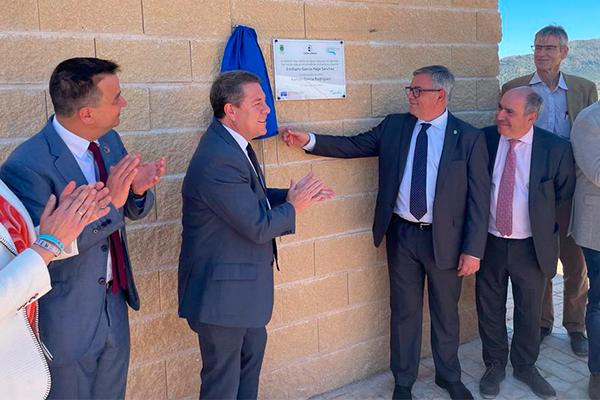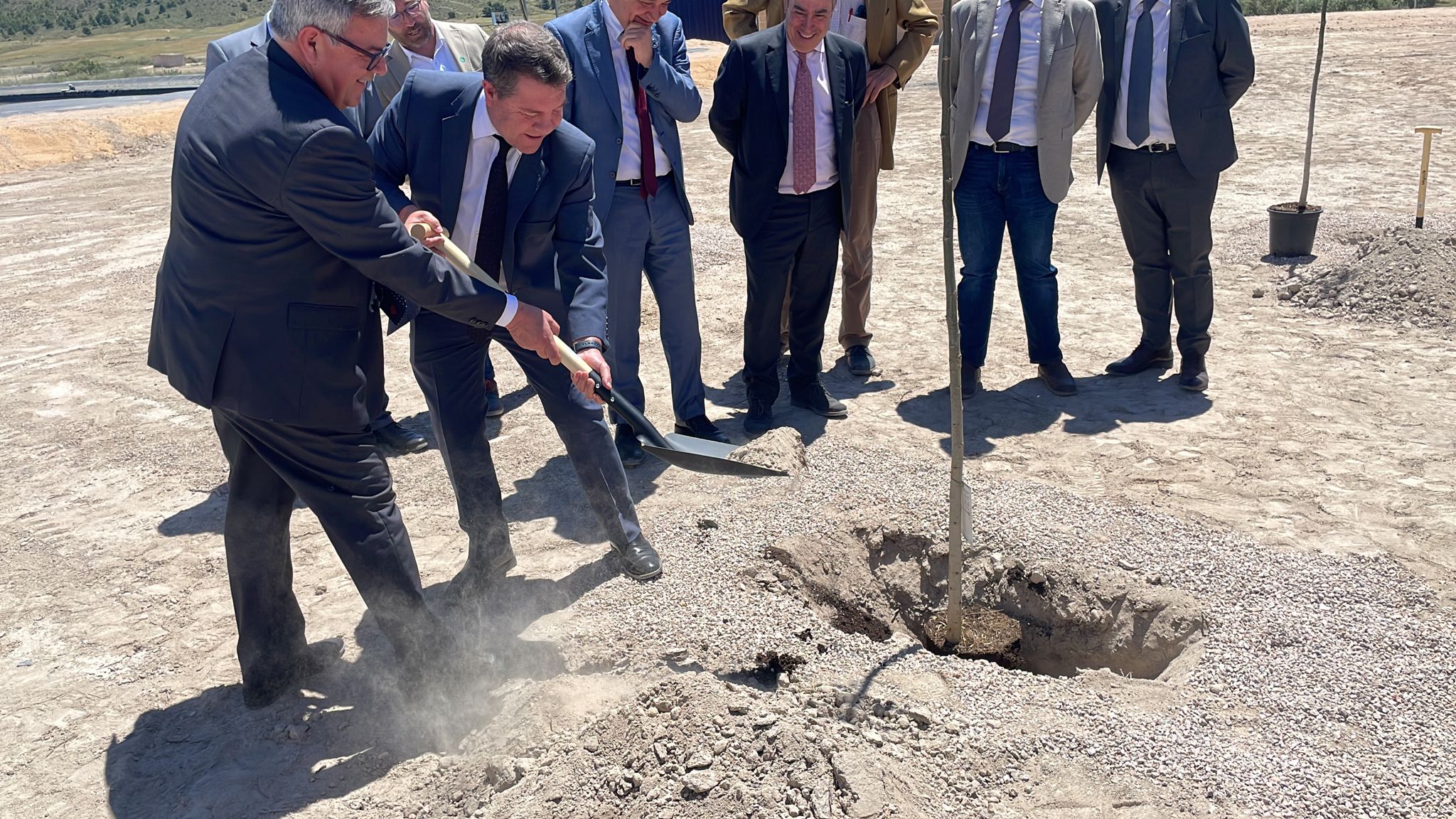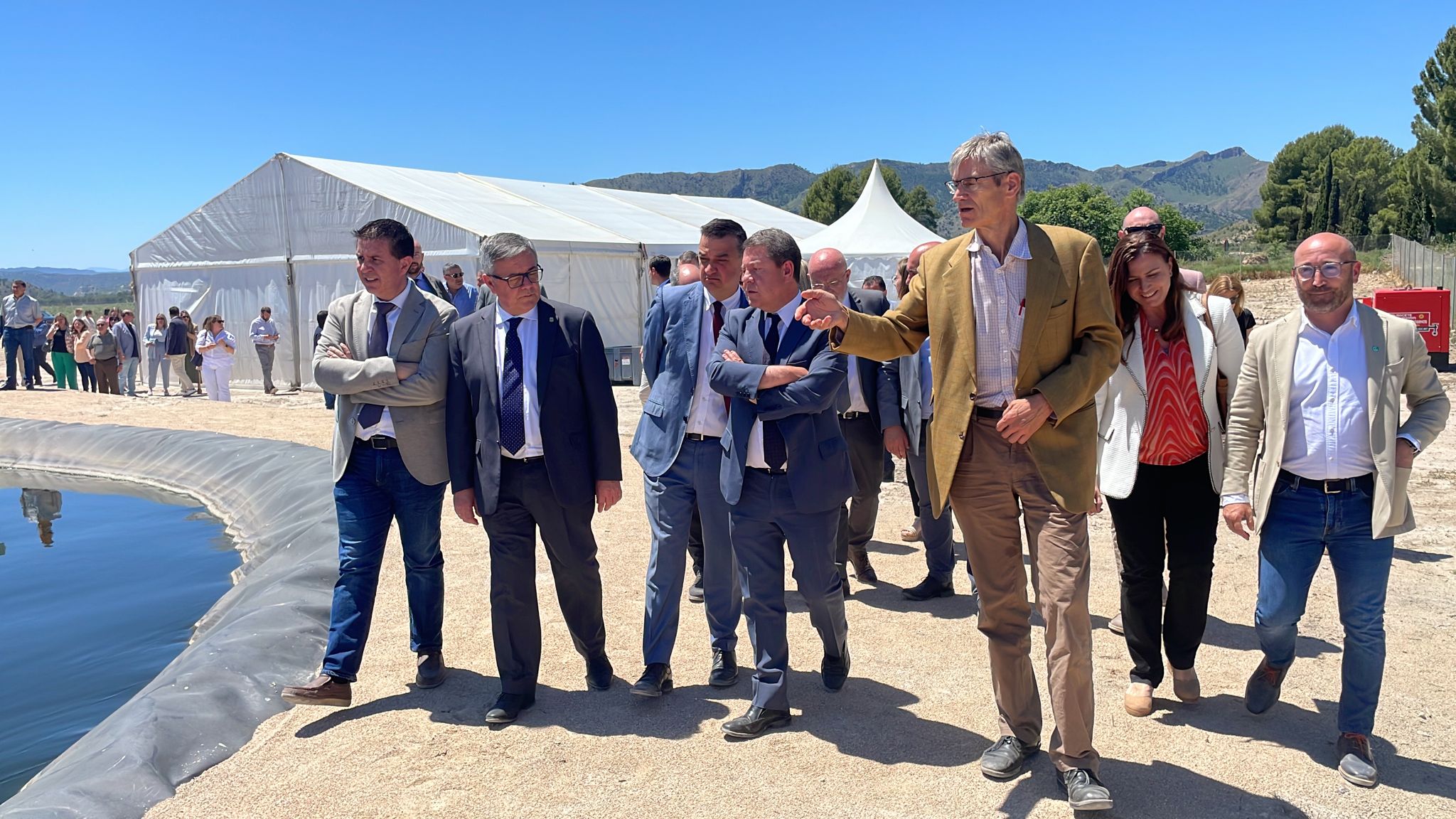
García-Page inaugurates an innovative facility in Agramón (Hellín) capable of producing bio-products from wastewater
García-Page inaugurates an innovative facility in Agramón (Hellín) capable of producing bio-products from wastewater
- The presentation of the infrastructures linked to the European SABANA project was held this morning at the new Agramón wastewater treatment plant, demonstrating the innovative processes and sustainable water treatment solutions for small towns and villages
- Small town wastewater treatment remains a unresolved issue in Spain, where 72% of the municipalities have fewer than 2,000 resident
- The Aqualia-led circular economy project known as SABANA aspires to obtain high added-value bioproducts (biofertilisers, biostimulants or biopesticides) from wastewater as a raw material for the cultivation of microalgae

After years of analysis and research in search of a sustainable wastewater treatment solution for the Agramón district, the Hellín Town Council incorporated an innovative Aqualia-developed technology into the new municipal wastewater treatment plant, thus enabling the treatment and reuse of wastewater to be converted into high added-value bioproducts. Castile-La Mancha regional government chairman, Emiliano García Page, together with Hellín's mayor, Ramón García; and Aqualia's Zone I director, Juan Carlos Rey; inaugurated the new facilities, which are part of the SABANA project.
The ceremony consisted of starting up the demonstration plant and the symbolic planting of four walnut trees. This was followed by a guided tour of the facilities, during which the project's team of researchers gave an explanation of the technologies already in operation in the new facilities.
The SABANA project in Agramón, coordinated by the University of Almería, required the construction of a new wastewater treatment plant with a capacity of up to 1,000 m3/day. This facility houses a demonstration plant showcasing innovative processes. The developed concept represents a waste-free sustainable solution for wastewater treatment in small villages with minimum energy consumption.
The new treatment plant comprises a compact pre-treatment system followed by a 1 hectare microalgae lagoon, Europe's most extensive of its kind. The next stage consists of 4 artificial vertical flow wetlands of 50 m2 each, serving as clarifiers. There is an alternative stage for the production of biofertilisers using Aqualia's patented Dissolved Air Flotation System Technology (DAFAST), followed by centrifugation to concentrate the biomass prior to the subsequent hydrolysis stage.
This is an applied circular economy project that uses wastewater as a raw material for the cultivation of microalgae, yielding high value-added bioproducts: at significantly lower energy requirements than traditional purification processes, this results in biomass with remarkable biofertiliser, biostimulant and biopesticide properties. There is also the added advantage of direct production, eliminating the need for tertiary treatment of water suitable for reuse in accordance with RD 1620/2007.
The Hellín Town Council and Aqualia intend to use this technology to take a further step towards a lasting solution for wastewater treatment in Castile-La Mancha, where approximately 1,000 small towns and villages lack adequate wastewater treatment. The SABANA demonstration plant is a commitment to wastewater treatment sustainability in small and medium-sized urban centres, where such processes are either unavailable or insufficiently efficient. Between three and four million people living in small towns across Spain still do not treat their urban wastewater after use.
The project is being carried out by a consortium of 11 partners from five European countries and has a budget of over €10 million. With 70% funding from the European Union's Horizon 2020 Research and Innovation Programme, research has been ongoing since 2016 across a number of European sites.
SABANA is an example of Aqualia's commitment beyond the provision of services associated with the end-to-end water cycle. The company seeks to add value in the towns in which it operates through social and environmental projects that cater to the needs of each region and with a focus on sustainability.
Aqualia is permanently collaborating with universities, research centres, national and international organisations and city councils to achieve this goal, while contributing to the fight against climate change and the achievement of the UN's Sustainable Development Goals of the 2030 Agenda. Science, Technology and Innovation are a key tool to implement this Agenda, since they can improve efficiency from an economic and environmental point of view, developing new and better sustainable ways to meet the planet's needs.






